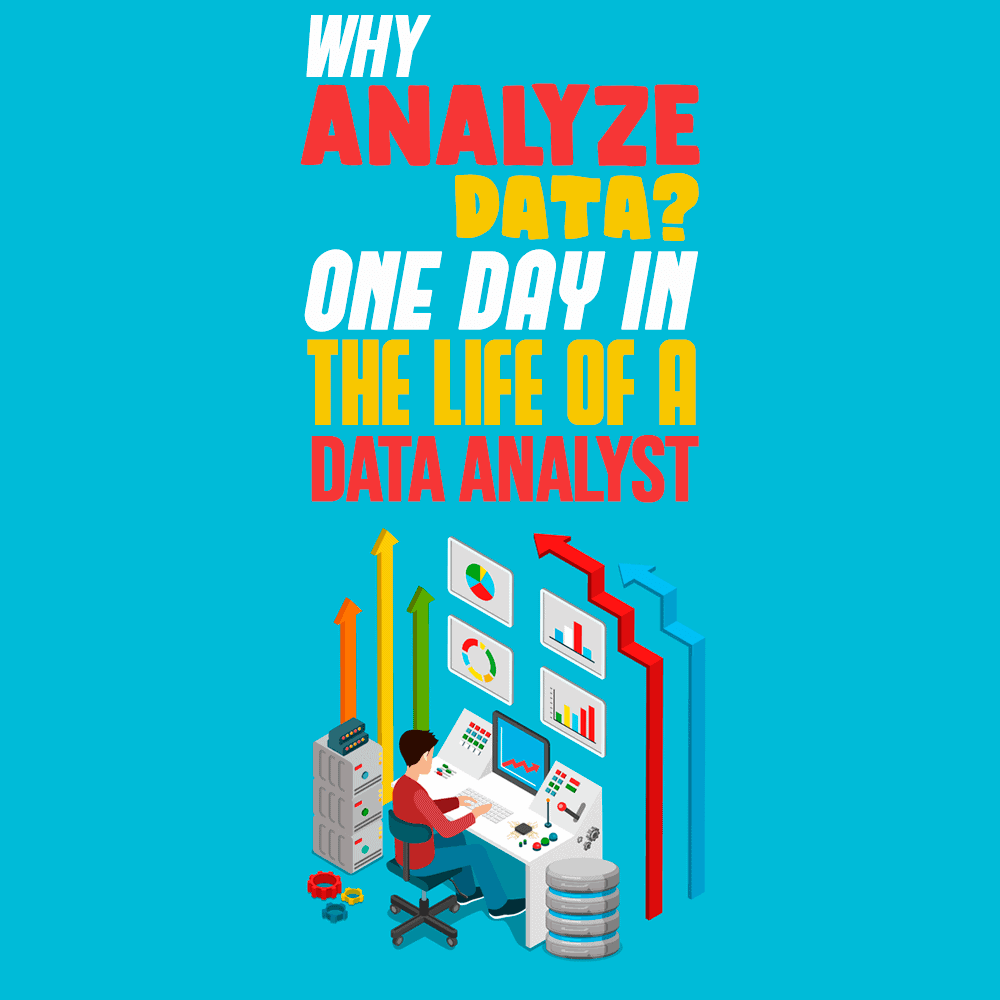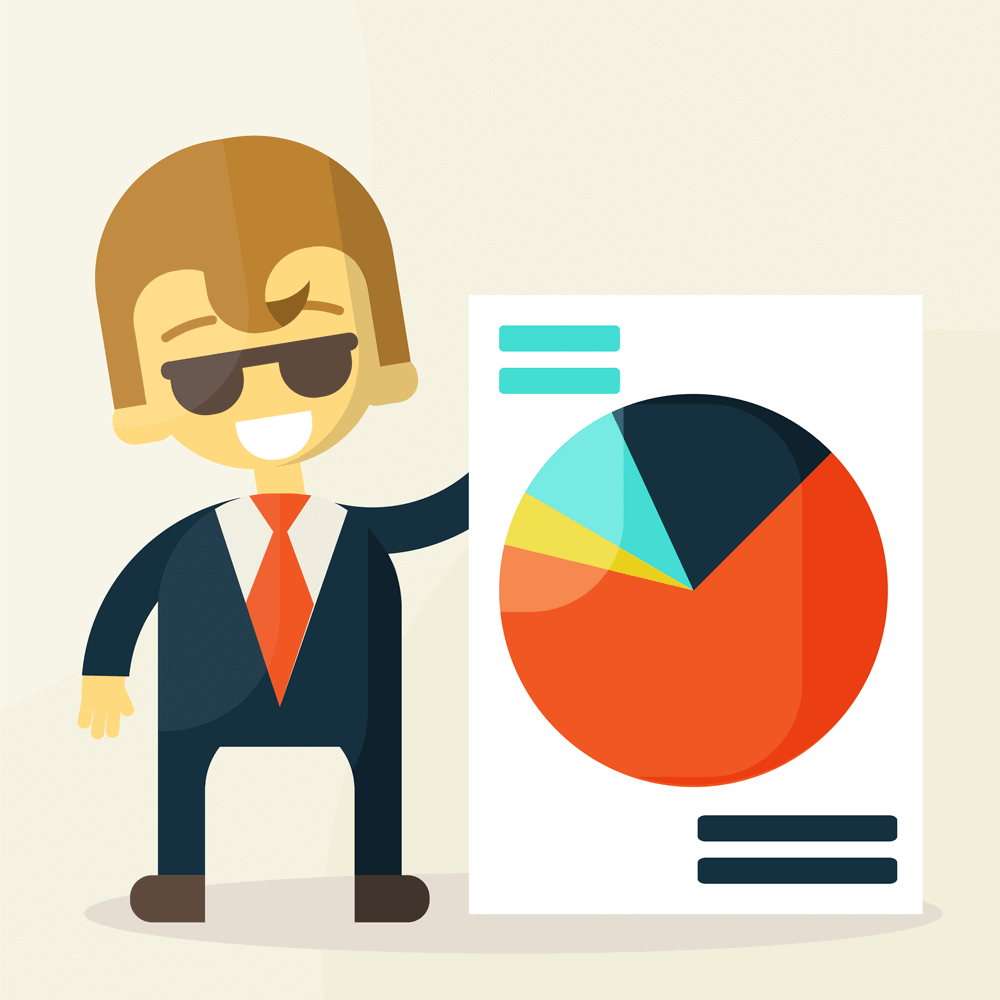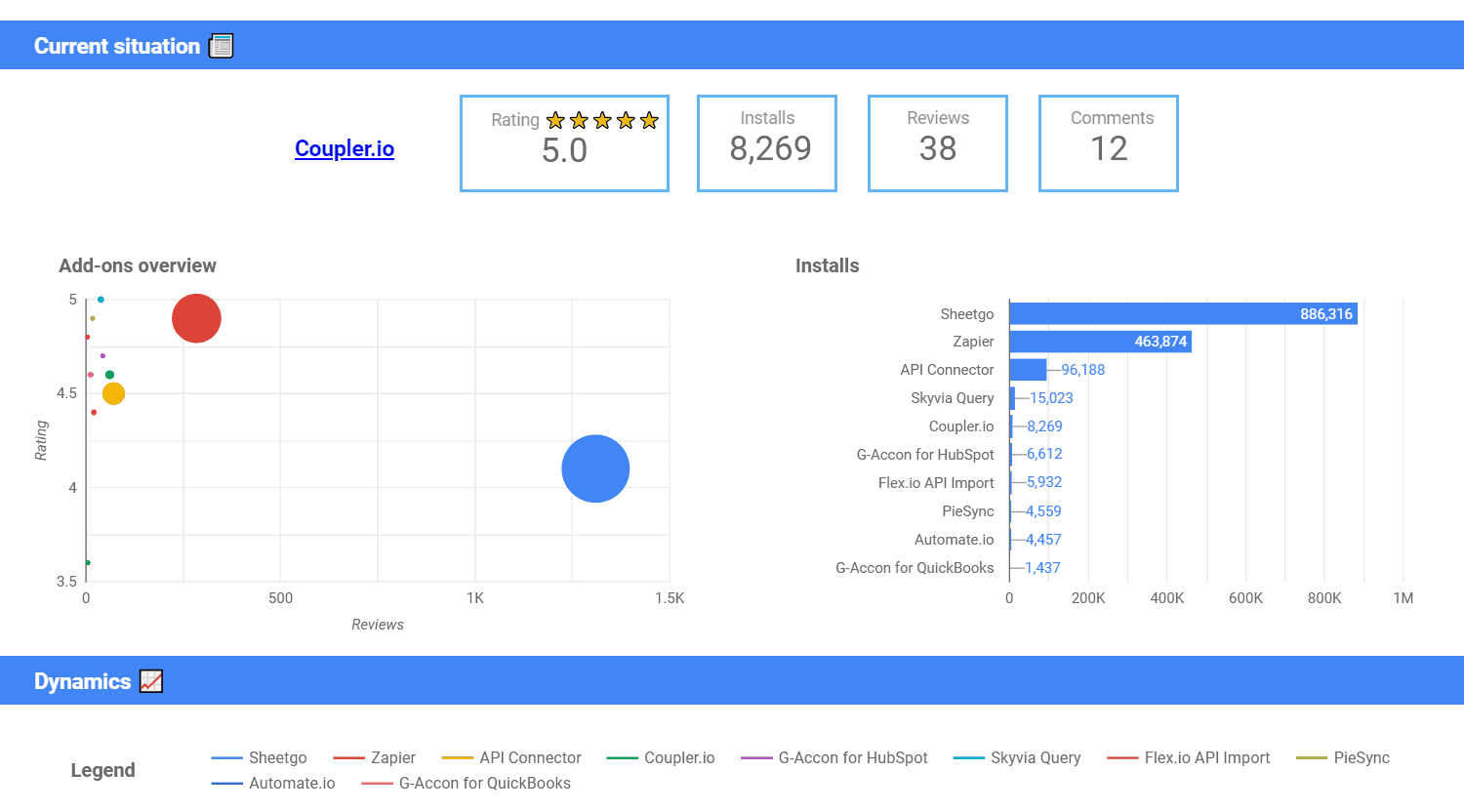
- Eighty-five percent of companies will adopt big data and data analytics technologies.
- Ninety-six percent of companies will have specialists with data analytics skills on board.
This forecast is coming true since the demand in data analysts on the job market is skyrocketing. As a result, the interest in this speciality has also increased.
For example, Google returns 295 million search results on the question “how to become a data analyst?” Meanwhile, the question “what does a data analyst do?” is even trendier, with 460 million results.
Do you also need answers? Maybe you’re interested in becoming a data analyst, or a data expert has recently joined your team, but you don’t know what they do or why they are important.
In this blog post, you’ll find firsthand insights from an actual data analyst and learn how a day in the life of a data analyst on the project Coupler.io looks.
What Is Data Analytics for, and What Does a Data Analyst Do?
When you analyze the data of your business, you keep up with the leaps and drops of the key metrics and can react on time. This lets you avoid stagnation of your business and make it better in different aspects.
For example, let’s say the churn rate went up. After the data analysis, you understood what had caused users to leave. Once this drawback is fixed, you’ll probably not have to face this issue again, so the users will be happier.
Data analysts process and interpret data. Their main task is to introduce the data in an intelligible form so that a business owner or manager can use it for decision-making.
For example, let’s assume you’ve tracked a drop in your sales. The first obvious question is “Why?”.
A data analyst will check the sales data and provide answers on what could have gone wrong. Based on that, you as a product/business owner, will come up with a solution, which will either fix the situation or make it worse. So, data analysts participate in decision making, but they are not accountable for decisions.
Do Data Analysts Build Reporting Systems or Dashboards?
Usually, business intelligence (BI) analysts deal with collecting and structuring data, but this mostly applies to big companies.
In medium and small businesses, the tasks of data analysts can include automating data collection, creating reporting systems, building metrics dashboards, and so on.
Are Data Analysts, Business Intelligence Analysts, and Data Scientists the Same Thing?
These are different types of analysts who have different scopes. Business intelligence analysts or simple business analysts are mostly engaged in data collection and reporting automation. They build dashboards, compile reports, and process a lot of data. However, they do not analyze or interpret it—this is what data analysts do.
Data scientists, in turn, mostly do investigative data analysis and create machine-learning models. Their scope is to build a solution to meet a certain business need. In most cases, they create mathematical models based on machine learning (ML) algorithms.
A Day in the Life of a Data Analyst at Coupler.io
Elvira is a data analyst at Railsware. She started her career path as a BI analyst at Kazpost—the biggest postal service company in Kazakhstan.
Her employment record also includes Beeline (mobile operator), Alfa-Bank, and OLX Group. In addition, Elvira is a mentor at an IT career advancement program, Practicum by Yandex, where she shares her experience with newbie data enthusiasts.
At Railsware, Elvira is involved in several projects, including Coupler.io. It is a solution to import data into Google Sheets from external data sources, such as Airtable, Jira, CSV, etc.
So I’ve asked Elvira about her role as a product data analyst and the scope she is dealing with day-to-day.
What Types of Product Data Do You Analyze?
“At Coupler.io, I analyze versatile data including user activity, costs, revenues, errors, etc. For example, here is how a competitor analysis dashboard looks:
“Besides Coupler.io, I’m also engaged in other projects within Railsware. We recently introduced a blog post, Post Coronavirus Destinations Dashboard, where you can see an example of my scope.”
Which Tools Do You Use To Fetch and Analyze Data?
“I use different tools, depending on the job to be done. In general, here is a set of hard skills for a good data analyst:
- Programming and database languages: Python, R, SQL, etc.
- Analytical tools: Excel, SPSS, SAP, STATA, etc.
- Visualization tools: Tableau, Power BI, Qlik Sense, etc.
“For example, to create a table that will show Coupler.io’s position in search results on the G Suite Marketplace, I used the following tools:
- Google Cloud Functions (as an environment)
- JavaScript
- Coupler.io
- Google Sheets
“And here is how it looks:”
Can Data Analysts Do Without Coding?
“In some companies with incorporated analytical software, data analysts may do without coding for their tasks. But this is rare because the use of programming languages such as Python or R is quite beneficial for analytics.
“To my mind, the Structured Query Language (SQL) is a front-rank skill for every data analyst. In most projects, data analysts make SQL requests to pull data from databases. For more on SQL, you can watch the SQL Tutorial for Beginners on the Railsware YouTube channel.”
How To Become a Data Analyst
“Well, there are two ways to become a data analyst: university or self-education. Both options have their pros and cons, but I would rank the latter higher. To learn data analytics yourself, you can use books, courses, workshops, etc.
“You can study alongside your main activity (work, traveling) and absorb knowledge from hands-on experts. The drawback of online education is the lack of face-to-face communication.
“However, this should not be a problem due to the effect that the COVID-19 has had on numerous industries, including Web Development. Anyway, it’s up to you.”
Which Soft Skills Do Data Analysts Use Every Day in Their Work?
“I believe that the following skills are essential for any data analyst:
Teachability. Data analysts learn on the go: new tools, techniques, approaches, and so on. So, you should be teachable and eager to gain new knowledge.
Critical thinking. A data analyst interprets data, so they have to see the logic in any correlation.
“For example, you might have encountered a spurious correlation between Nicolas Cage and drowned people. It’s a chart where the number of people who drowned in a swimming-pool correlates with the number of the films Nicolas Cage appeared in.
“There is a mathematical correlation between these two values, but there is no logic. Critical thinking helps data analysts avoid such data traps.
Googling skill. A good data analyst must know their onions in how to search data in the most efficient way. Not all cases that you’ll face in your scope have been covered in books or online courses. So you’ll need to query Google or any other search engine correctly to get what you need.
Decomposition of tasks. Let’s say you’ve got a big task like I had when I joined Railsware. It was to analyze one of our products—Jira Smart Checklist.
“The analysis needed to include sales, installs, and other data. Since it was a big task, I broke it down into smaller ones and prioritized. It looked like an implementation plan and helped me to structure my scope.”
What Do You Like and Dislike in Data Analytics?
“What I like the most about data analytics is that you learn and develop all the time.
“A data analyst feels like a detective who is working on a case—they make investigations and look for clues. In the end, they come up with a verdict that can bring a lot of value.
“For me, data analytics is magic that we, data analysts, use to process data and make it getable and understandable for stakeholders.
“As for what I dislike, it’s terrible when companies hire data analysts because it’s up-to-market. As a result, you can spend your time in such a company without any analytical scope.
“Another drawback is the lack of understanding of data analytics scope. For me as a data analyst, it is harmful when a data analysis I do has no practical use. Nobody likes to do monkey business.
“Another terrible thing that many data analysts have faced is data diddling. It’s frequent in large corporations with hierarchical structures.
“The idea of data diddling is to do a data analysis that displays the previously defined metrics. Why? To show investors that everything is going well or to report the increase of sales to a top manager; cases differ. But it is nonsense from a data analyst’s standpoint, and it has nothing to do with data analytics.”
When Should a Product or Business Have a Data Analyst?

- which tech stack to use for your project.
- how many developers are needed.
- what the competitors are for the future product and so on.
At the beginning, different executives can be involved in data analytics. But then the scope will grow, and it’s better to have a dedicated professional who will own this process. That’s when a data analyst should come into play.
Elvira also believes that “it’s a mistake to think that the number of necessary data analysts depends on a company’s size. The data analytics scope is what you should consider.
If you have plenty of data to analyze, hire one data analyst, and you’ll see whether the scope is achievable. After that, you’ll better understand how many analysts your company needs.”
A Data Analyst Can Facilitate Decision-Making
Analyzing data is a crucial process of running any product or business. At some projects, data analytics falls within the duties of product managers, marketing specialists, or other stakeholders. But the increasing scope of data will require a dedicated expert to own the process of analytics.
Having a data analyst on your team means that you tend to make data-driven decisions rather than pin faith to a good inning. However, data analysts are not decision-makers. They pull data and analyze it to prove or disprove certain hypotheses.
The outcome of their work can be an interactive dashboard, a thorough report, or even a predictive model built with ML algorithms. Based on that, a stakeholder can make a decision.
That’s what data analysts do: They help executives choose the right direction.

